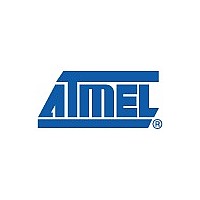ATMEGA8U2-MU Atmel, ATMEGA8U2-MU Datasheet - Page 20

ATMEGA8U2-MU
Manufacturer Part Number
ATMEGA8U2-MU
Description
MCU AVR 8K FLASH USB 32-VQFN
Manufacturer
Atmel
Series
AVR® ATmegar
Specifications of ATMEGA8U2-MU
Core Processor
AVR
Core Size
8-Bit
Speed
16MHz
Connectivity
SPI, UART/USART, USB
Peripherals
Brown-out Detect/Reset, POR, PWM, WDT
Number Of I /o
22
Program Memory Size
8KB (4K x 16)
Program Memory Type
FLASH
Eeprom Size
512 x 8
Ram Size
512 x 8
Voltage - Supply (vcc/vdd)
2.7 V ~ 5.5 V
Oscillator Type
Internal
Operating Temperature
-40°C ~ 85°C
Package / Case
32-VQFN Exposed Pad, 32-HVQFN, 32-SQFN, 32-DHVQFN
Processor Series
ATMEGA8x
Core
AVR8
Data Bus Width
8 bit
Data Ram Size
1 KB
Interface Type
SPI, UART
Maximum Clock Frequency
16 MHz
Number Of Programmable I/os
22
Number Of Timers
2
Maximum Operating Temperature
+ 85 C
Mounting Style
SMD/SMT
3rd Party Development Tools
EWAVR, EWAVR-BL
Development Tools By Supplier
ATAVRDRAGON, ATSTK500, ATSTK600, ATAVRISP2, ATAVRONEKIT, AT90USBKEY, ATEVK525
Minimum Operating Temperature
- 40 C
Package
32QFN EP
Device Core
AVR
Family Name
ATmega
Maximum Speed
16 MHz
Operating Supply Voltage
3.3|5 V
For Use With
ATSTK600 - DEV KIT FOR AVR/AVR32ATSTK500 - PROGRAMMER AVR STARTER KIT
Lead Free Status / RoHS Status
Lead free / RoHS Compliant
Data Converters
-
Lead Free Status / Rohs Status
Details
- Current page: 20 of 309
- Download datasheet (6Mb)
7.4.1
7.5
7.5.1
7.5.2
7799D–AVR–11/10
Register Description
General Purpose I/O Registers
EEARH and EEARL – The EEPROM Address Register
EEDR – The EEPROM Data Register
Extended I/O space from 0x60 - 0x1FF in SRAM, only the ST/STS/STD and LD/LDS/LDD
instructions can be used.
For compatibility with future devices, reserved bits should be written to zero if accessed.
Reserved I/O memory addresses should never be written.
Some of the Status Flags are cleared by writing a logical one to them. Note that, unlike most
other AVRs, the CBI and SBI instructions will only operate on the specified bit, and can therefore
be used on registers containing such Status Flags. The CBI and SBI instructions work with reg-
isters 0x00 to 0x1F only.
The I/O and peripherals control registers are explained in later sections.
The ATmega8U2/16U2/32U2 contains three General Purpose I/O Registers. These registers
can be used for storing any information, and they are particularly useful for storing global vari-
ables and Status Flags. General Purpose I/O Registers within the address range 0x00 - 0x1F
are directly bit-accessible using the SBI, CBI, SBIS, and SBIC instructions.
• Bits 15:12 – Res: Reserved Bits
These bits are reserved and will always read as zero.
• Bits 11:0 – EEAR[8:0]: EEPROM Address
The EEPROM Address Registers – EEARH and EEARL specify the EEPROM address in the
512 bytes EEPROM space. The EEPROM data bytes are addressed linearly between 0 and
512. The initial value of EEAR is undefined. A proper value must be written before the EEPROM
may be accessed.
• Bits 7:0 – EEDR[7:0]: EEPROM Data
For the EEPROM write operation, the EEDR Register contains the data to be written to the
EEPROM in the address given by the EEAR Register. For the EEPROM read operation, the
EEDR contains the data read out from the EEPROM at the address given by EEAR.
Bit
0x22 (0x42)
0x21 (0x41)
Read/Write
Initial Value
Bit
0x20 (0x40)
Read/Write
Initial Value
15
EEAR7
MSB
R/W
R/W
R
X
–
7
0
7
0
14
EEAR6
R/W
R/W
R
–
6
0
X
6
0
13
EEAR5
R/W
R/W
R
–
5
0
X
5
0
12
EEAR4
R/W
R/W
R
X
–
4
0
4
0
11
EEAR11
ATmega8U2/16U2/32U2
EEAR3
R/W
R/W
R/W
X
X
3
3
0
10
EEAR10
EEAR2
R/W
R/W
R/W
2
X
X
2
0
9
EEAR9
EEAR1
R/W
R/W
R/W
1
0
1
X
X
8
EEAR8
EEAR0
LSB
R/W
R/W
R/W
X
X
0
0
0
EEDR
EEARH
EEARL
20
Related parts for ATMEGA8U2-MU
Image
Part Number
Description
Manufacturer
Datasheet
Request
R

Part Number:
Description:
IC AVR MCU 8K 16MHZ 5V 32TQFP
Manufacturer:
Atmel
Datasheet:

Part Number:
Description:
IC AVR MCU 8K 16MHZ 5V 32-QFN
Manufacturer:
Atmel
Datasheet:

Part Number:
Description:
IC AVR MCU 8K 16MHZ 5V 28DIP
Manufacturer:
Atmel
Datasheet:

Part Number:
Description:
IC AVR MCU 8K 16MHZ COM 32-TQFP
Manufacturer:
Atmel
Datasheet:

Part Number:
Description:
IC AVR MCU 8K 16MHZ IND 32-TQFP
Manufacturer:
Atmel
Datasheet:

Part Number:
Description:
IC AVR MCU 8K 16MHZ COM 28-DIP
Manufacturer:
Atmel
Datasheet:

Part Number:
Description:
IC AVR MCU 8K 16MHZ IND 28-DIP
Manufacturer:
Atmel
Datasheet:

Part Number:
Description:
IC AVR MCU 8K 16MHZ COM 32-QFN
Manufacturer:
Atmel
Datasheet:

Part Number:
Description:
MCU AVR 8KB FLASH 16MHZ 32QFN
Manufacturer:
Atmel
Datasheet:

Part Number:
Description:
IC AVR MCU 8K 16MHZ IND 32-QFN
Manufacturer:
Atmel
Datasheet:

Part Number:
Description:
IC MCU AVR 8K 5V 16MHZ 32-TQFP
Manufacturer:
Atmel
Datasheet:

Part Number:
Description:
IC MCU AVR 8K 5V 16MHZ 32-QFN
Manufacturer:
Atmel
Datasheet:

Part Number:
Description:
IC MCU AVR 8K 5V 16MHZ 28-DIP
Manufacturer:
Atmel
Datasheet:











